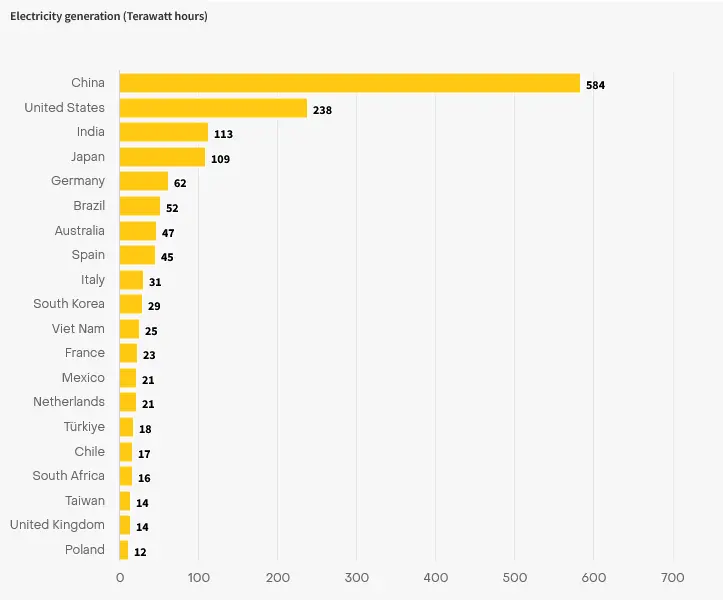- cross-posted to:
- nyt_gift_articles@sopuli.xyz
- cross-posted to:
- nyt_gift_articles@sopuli.xyz
But no country has come close to matching the scale and tenacity of China’s support. The proof is in the production: In 2022, Beijing accounted for 85 percent of all clean-energy manufacturing investment in the world, according to the International Energy Agency.
Now the United States, Europe and other wealthy nations are trying frantically to catch up.
Easy to do that when you can literally just control the market and the slave labor camps… Oh and when you are a fascist dictatorship.
There are a lot of other things China does, including:
- Free/cheap land for factories
- Assurances that a market will be available for the resulting product
- Low-interest loans to businesses in favored industries
- Grants to businesses in favored industries
- Assurances that a market for the product will exist
- Barriers to purchasing from abroad
Some of these can be replicated in the west without impinging on freedom in any kind of meaningful way
I wish we thought about it before letting them join WTO.
They’ll need to stop being a authoritarian dictatorship before I give them a crumb of credit.
This is the best summary I could come up with:
China’s unrivaled production of solar panels and electric vehicles is built on an earlier cultivation of the chemical, steel, battery and electronics industries, as well as large investments in rail lines, ports and highways.
It all combined to help put China in the position today to flood rival countries with low-cost electric cars, solar cells and lithium batteries, as consumers across the wealthy world are increasingly turning to green tech.
President Biden and European leaders are determined to develop their countries’ manufacturing capacity in advanced technologies like semiconductors, electric vehicles and batteries, in part by adopting some of China’s tactics to nurture industries.
China’s rise to dominate key global manufacturing sectors showed the potential and power of national industrial policy, said Jennifer Harris, a former Biden aide who now leads the Economy and Society Initiative at the William and Flora Hewlett Foundation.
“The West’s decision to pursue neoliberal economic policies was a strategic mistake, which led to the de-industrialisation of their economies and provided China with an opportunity,” Zheng Yongnian, a professor at Chinese University of Hong Kong, said.
At a meeting last week in Italy of the Group of 7 finance ministers, leaders from both sides of the Atlantic warned that the United States and Europe must coordinate their protectionism and their subsidies if they hope to catch Beijing in the race to dominate key industries.
The original article contains 1,279 words, the summary contains 227 words. Saved 82%. I’m a bot and I’m open source!
They actually had an industrial policy for the last forty years, unlike the United States or Europe, which both abdicated their interests to those of giant corporations whose only goals are reducing costs and increasing profits.
deleted by creator




